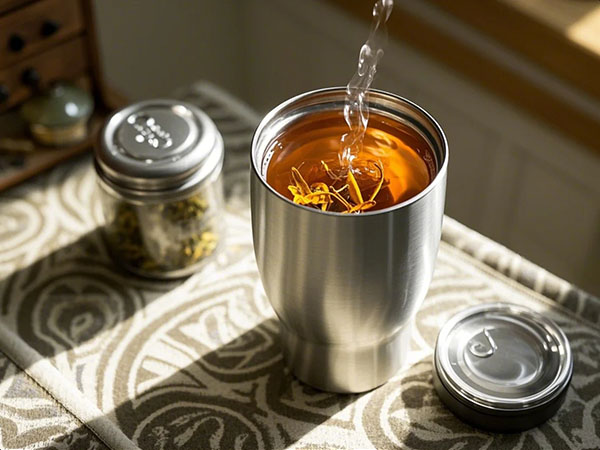In contemporary lifestyles, tea brewing has evolved into a cherished ritual for relaxation and mindfulness. With technological advancements, stainless steel vacuum insulated cups have gained widespread popularity due to their exceptional thermal retention properties, becoming the preferred choice for portable beverage containers. However, this very convenience has sparked considerable debate regarding their suitability for tea preparation. Let us examine this matter comprehensively.
The fundamental construction of stainless steel vacuum insulated cups features dual-layer stainless steel walls with an intermediate vacuum layer, engineered to provide superior insulation while effectively isolating the contents from external temperature fluctuations. While this design excels at temperature maintenance, it raises legitimate concerns among tea connoisseurs regarding optimal tea brewing conditions.
The nuanced flavors and aromatic profiles of tea leaves are profoundly influenced by precise brewing temperatures and infusion durations. Different tea varieties require specific thermal conditions to fully express their characteristic essences. The sustained high temperatures maintained within vacuum insulated cups may potentially alter these delicate flavor profiles. Particularly for delicate green teas, prolonged exposure to elevated temperatures can accelerate the extraction of tannins, resulting in undesirable astringency.
Furthermore, while stainless steel demonstrates excellent corrosion resistance, extended contact with tea may facilitate subtle molecular interactions that could theoretically influence taste characteristics. Although these effects are minimal, they warrant consideration for those pursuing the ultimate tea experience.

Nevertheless, vacuum insulated cups offer distinct advantages for certain applications. They prove particularly suitable for teas requiring sustained high temperatures, such as black teas or oolong varieties, where they facilitate optimal flavor extraction. For mobile professionals or travelers lacking access to proper brewing facilities, these cups provide a practical solution for enjoying properly steeped tea throughout the day.
Maintenance considerations are equally crucial. Tea residues can accumulate within the container, necessitating prompt cleaning with pH-neutral detergents and soft cleaning implements to preserve the cup's interior finish. Abrasive cleaning tools should be strictly avoided to prevent compromising the protective surface layer.
In conclusion, the use of stainless steel vacuum insulated cups for tea preparation presents both advantages and limitations. While they may not satisfy the exacting standards of traditional tea ceremonies, they offer unparalleled convenience for contemporary lifestyles. Ultimately, the choice depends on individual priorities regarding flavor precision versus practical utility in our fast-paced world.